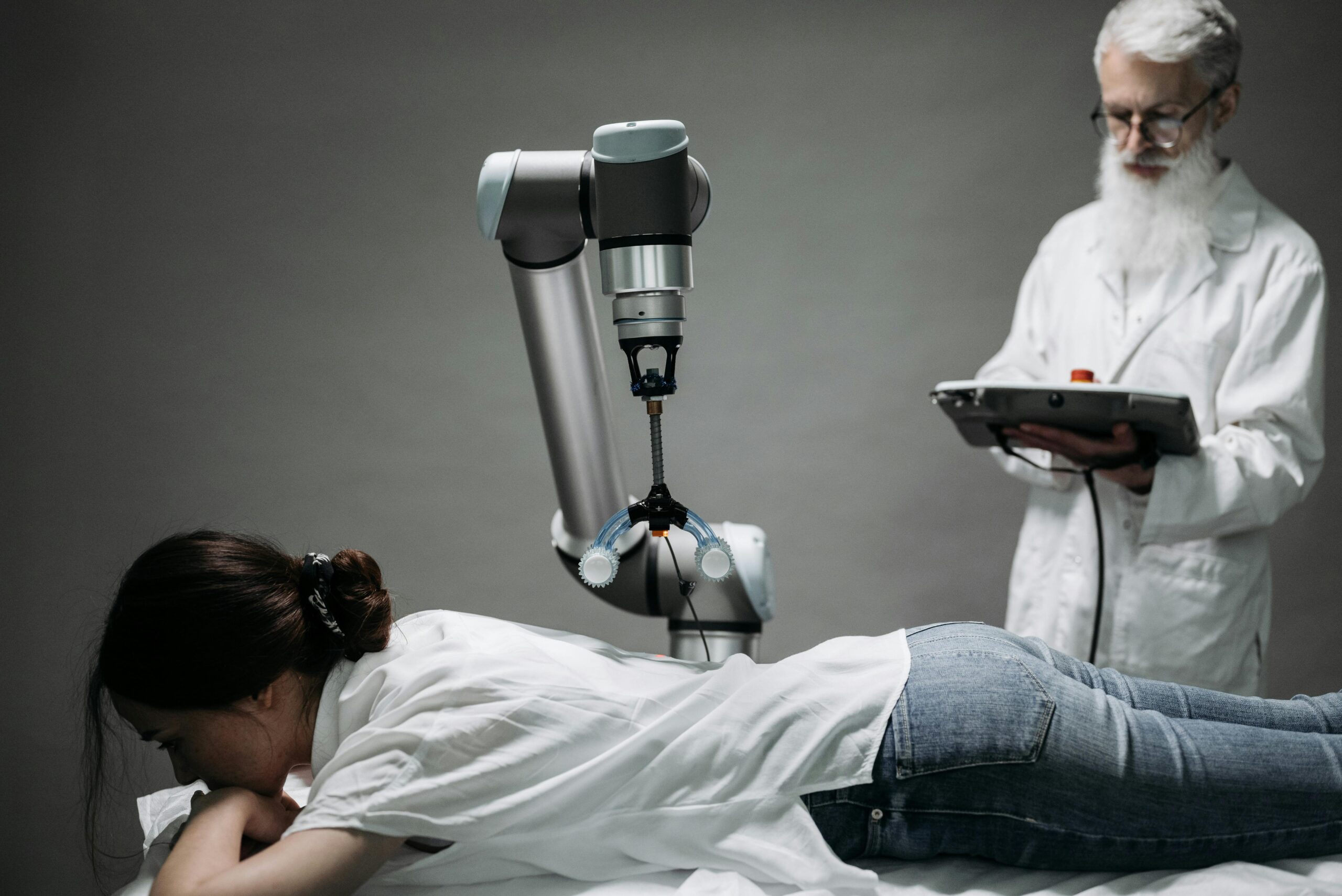AI in Medical Diagnosis: Revolutionizing Healthcare with Machine Learning
Revolutionizing Healthcare with Machine Learning; Artificial intelligence is transforming the medical field, enabling faster, more accurate diagnoses and improving patient outcomes. From detecting cancer at its earliest stages to predicting disease outbreaks, AI-driven tools are revolutionizing healthcare in ways that were once unimaginable. As AI-powered systems become more sophisticated, they hold the potential to redefine modern medicine.
1. How AI is Changing Medical Diagnosis
AI algorithms analyze vast amounts of medical data, recognizing patterns that human doctors might miss. These systems can detect anomalies in medical images, process patient history data, and even suggest possible diagnoses with high accuracy.
Key technologies include:
- Deep Learning: AI models trained on millions of medical images can detect conditions such as tumors and fractures with remarkable precision.
- Natural Language Processing (NLP): AI can sift through patient records and clinical notes to extract relevant medical information.
- Predictive Analytics: Machine learning models analyze patient data to forecast potential health risks before symptoms appear.
- Wearable AI: Devices like smartwatches use AI to monitor vitals and alert users to irregularities such as arrhythmias.
2. AI Applications in Medical Diagnosis
AI-powered systems are already proving to be game-changers in several areas of medicine:
- Cancer Detection: AI algorithms, such as those used in mammography and lung scans, can identify early-stage cancers with greater accuracy than traditional methods.
- Neurological Disorders: AI is being used to diagnose conditions like Alzheimer’s and Parkinson’s by analyzing brain scans and speech patterns.
- Cardiovascular Diseases: AI can detect heart disease by evaluating ECG readings and identifying irregular heart rhythms.
- Diabetes Prediction & Management: AI models can predict a patient’s likelihood of developing diabetes and assist in glucose level monitoring.
- Dermatology: AI-based skin analysis apps help detect melanoma and other skin conditions from smartphone photos.
3. Recent Breakthroughs in AI-Driven Diagnosis
- Google’s DeepMind: Developed an AI system that detects over 50 eye diseases from retinal scans with expert-level accuracy.
- IBM Watson Health: Uses AI to assist doctors in diagnosing and recommending personalized cancer treatments.
- Stanford University: AI models have outperformed dermatologists in identifying skin cancer through deep learning analysis.
- MIT AI Lab: Created an early-stage lung cancer detection system that improves survival rates through early intervention.
4. Challenges & Ethical Considerations
Despite its benefits, AI in medical diagnosis faces key challenges:
- Data Privacy: Handling sensitive patient data raises concerns about security and confidentiality.
- Bias in AI Models: AI systems can inherit biases from training data, leading to disparities in diagnosis.
- Regulatory Hurdles: Approval for AI-based medical tools involves stringent regulatory testing and compliance.
- Human Oversight: AI should complement, not replace, medical professionals to ensure accurate and ethical decision-making.
5. The Future of AI in Medicine
As AI technology advances, we can expect:
- Personalized Treatment Plans: AI will tailor treatments based on genetic, lifestyle, and environmental factors.
- AI-Assisted Remote Diagnostics: Telemedicine and AI will combine to provide high-quality healthcare to remote areas.
- Faster Drug Discovery: AI-driven models will accelerate drug development and testing.
Revolutionizing Healthcare with Machine Learning: Final Thoughts
Revolutionizing Healthcare with Machine Learning; AI in medical diagnosis is not just a futuristic concept—it’s happening now. With the ability to enhance accuracy, reduce costs, and improve patient outcomes, AI is paving the way for a smarter and more efficient healthcare system. However, careful implementation and ethical considerations will be crucial as AI continues to reshape medicine.
